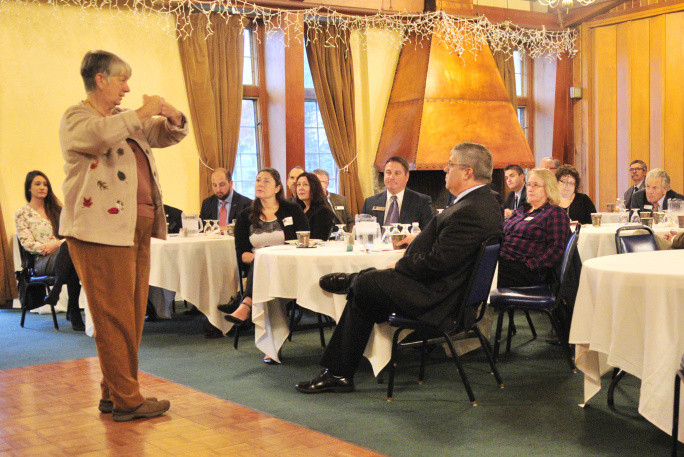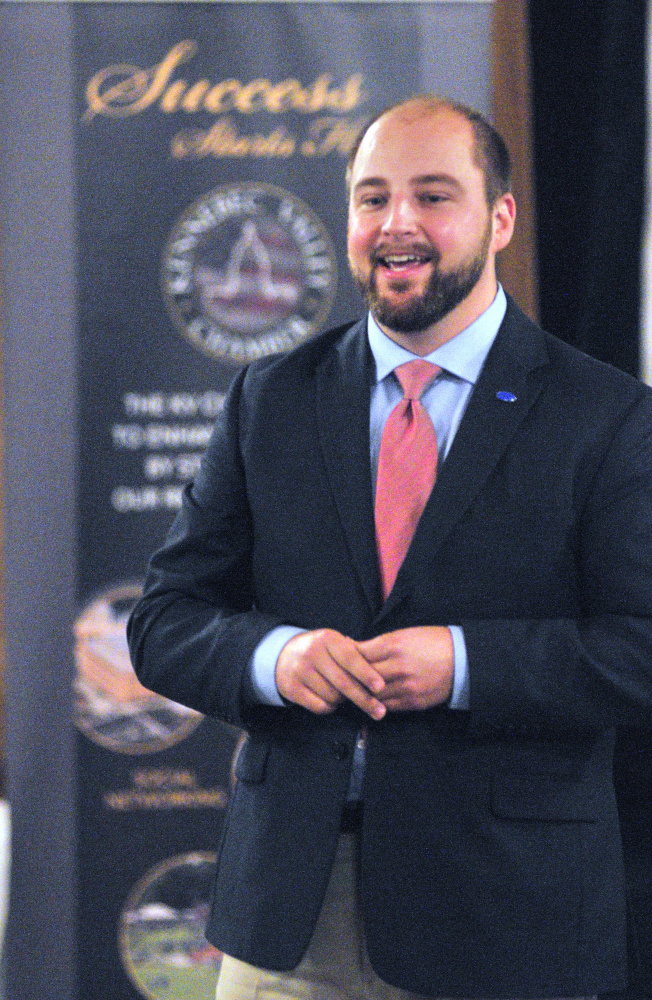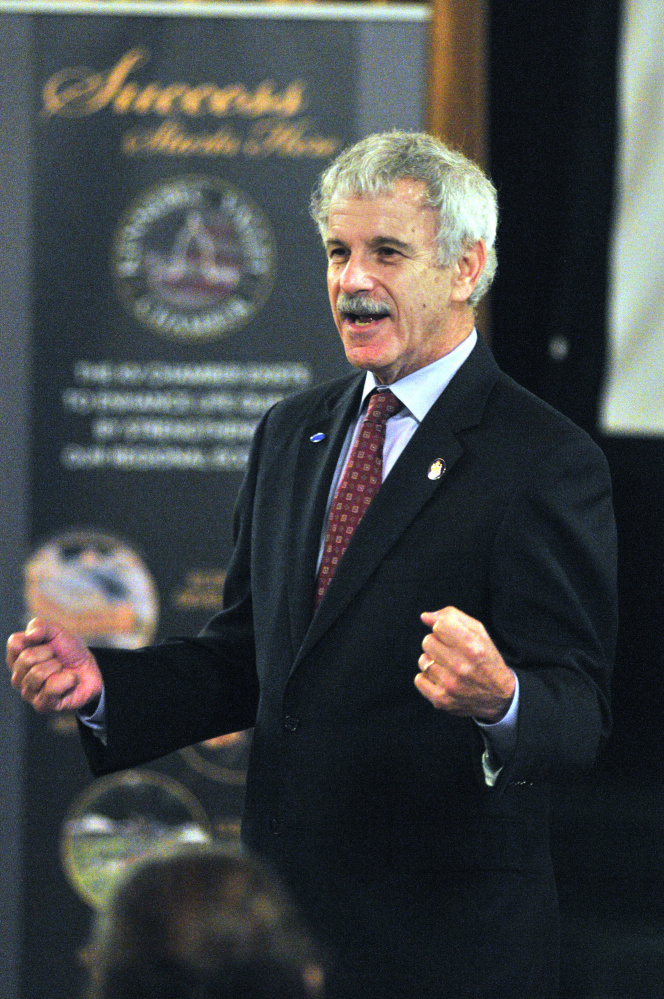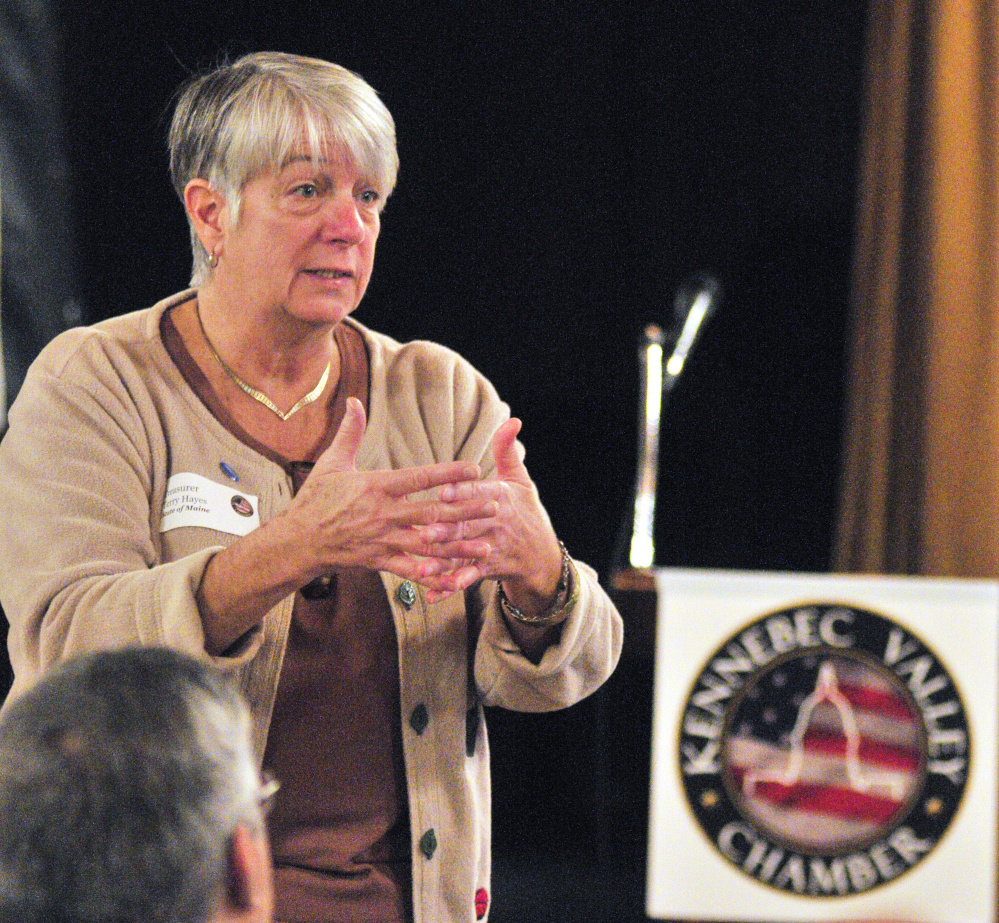AUGUSTA — Fresh from a hearing of the Maine Senate’s Conduct and Ethics Committee on Thursday, Sen. Roger Katz, R-Augusta, said Friday he’s concerned that state politics in Maine had reached a new low.
“I am not saying Democrats are worse that Republicans or Republicans are worse than Democrats,” Katz said. “But we have come to a new fork in the road where sitting members of the Legislature have decided to accuse other sitting members of the Legislature of ethical violations just before an election.”
Katz was referring to the ethics complaint brought against Sen. Ron Collins, R-Wells, accusing him of fraud for using a legislative allowance by Sen. John Patrick, D-Rumford and Senate Minority Leader Justin Alfond, D-Portland. The committee voted 4-1 to clear Collins, but the matter leaves Katz with some concerns.
“In the Legislature, we usually get along pretty well,” Katz said, noting that that has not been the case with Gov. Paul LePage. “I am seeing that really start to change in ways that are not particularly positive.”
Katz was one of three panelists to weigh in on the topic of creating civility in Maine state politics at a breakfast at the Governor Hill Mansion, sponsored by the Kennebec Valley Chamber of Commerce. He was joined in the presentation by Maine State Treasurer Terry Hayes and Rep. Matthew Pouliot, R-Augusta.
All three, along with Sen. Garrett Mason, R-Lisbon Falls, have been trained as facilitators by the National Institute for Civil Discourse, a nonpartisan center for advocacy, research and policy at the University of Arizona.
In this year’s races, Katz said, millions of dollars will be spent, both by Maine people and outside groups attempting to influence the outcome of the election. They won’t be working to elect candidates like Hayes or Pouliot because they are civil, reasonable people, he said. Instead, he said, they want to elect people who support their polarized agendas.
“There’s no money in the middle,” Katz said.
Hayes, who has been a Democrat but is now an independent, said when people stay in their partisan pockets, they trade talking points but they don’t listen to each other. When candidates insult each other and talk over one another in debates, they aren’t giving voters a chance to understand their positions or their policy proposals.
“There are things we can do individually to change the atmosphere,” she said.
As treasurer, she serves on 13 boards. During a meeting of one of those boards recently, she said she was presented with three choices and was asked which she supported. As it turns out, she supported none of them, rejecting the notion that there could be only three outcomes and supporting the idea that a compromise could be reached.
For Pouliot, the institute’s work is particularly important because civility in discourse is a national issue, and it can bring together legislators who, at some point, may run for Congress.
“We’ve decided to embed this into training for new legislators,” Pouliot said. “We don’t take courses on being in the Legislature, on how to conduct yourselves in the Legislature. This is really a grass-roots approach.”
Katz said he’s not sure what the solution is, but among the things to consider is mixing up seating patterns in the Legislature, so that party members are integrated, holding more collaborative meetings and promoting more social interactions among legislators.
“Maybe it’s some reform of campaign finance to slow down the impact of dark money in politics,” he said.
Jeff Edelstein, of the Maine Civic Innovation Initiative, was one of about 35 in attendance.
Among other audience questions about the role of the media and social media in civic discourse, Edelstein said he’s concerned that civility, among the discussions of “win-win” propositions, is considered namby-pamby or weak.
“It takes such courage to have people resolve conflict,” Edelstein said. “Civility is courageous.”
Jessica Lowell — 621-5632
Twitter: @JLowellKJ
Send questions/comments to the editors.






Success. Please wait for the page to reload. If the page does not reload within 5 seconds, please refresh the page.
Enter your email and password to access comments.
Hi, to comment on stories you must . This profile is in addition to your subscription and website login.
Already have a commenting profile? .
Invalid username/password.
Please check your email to confirm and complete your registration.
Only subscribers are eligible to post comments. Please subscribe or login first for digital access. Here’s why.
Use the form below to reset your password. When you've submitted your account email, we will send an email with a reset code.